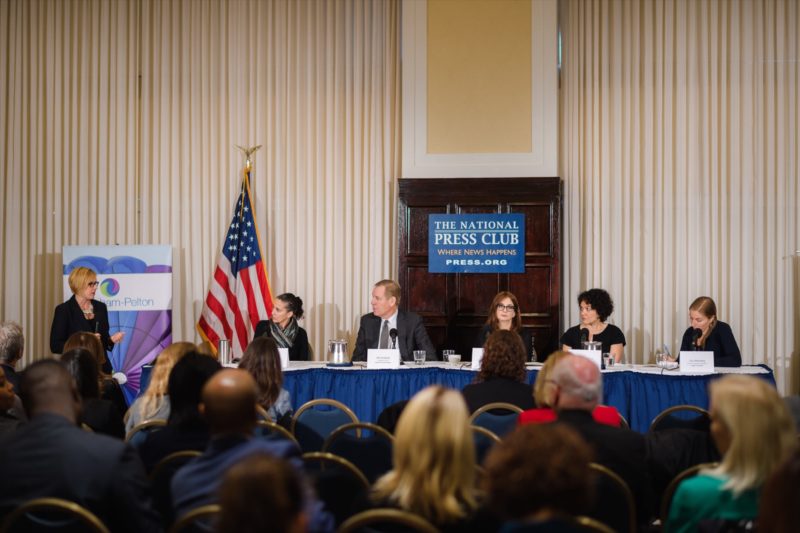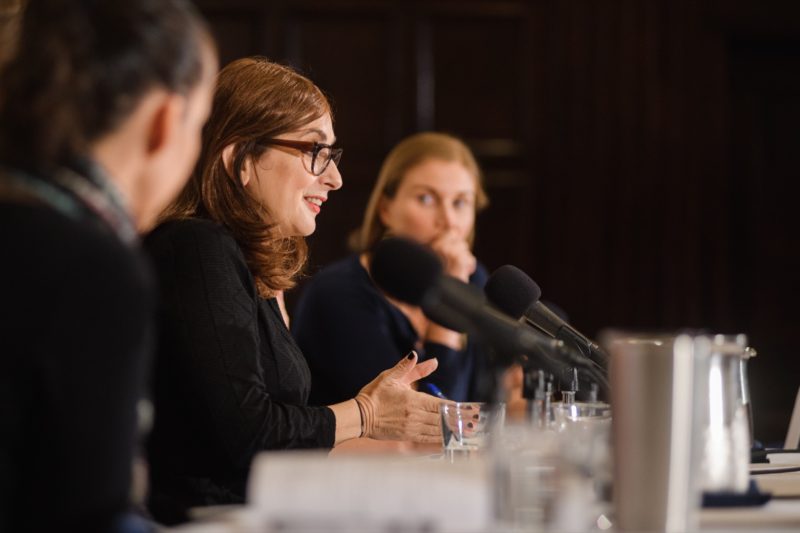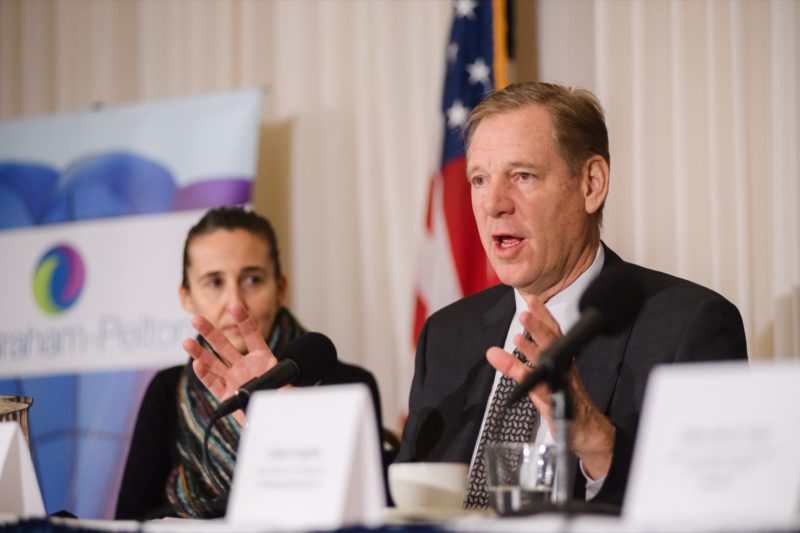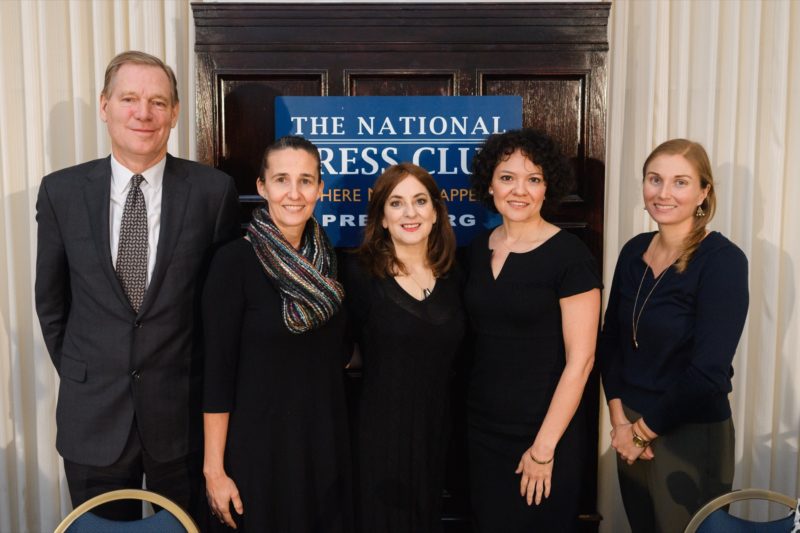
Merriam-Webster defines philanthropy as, “the desire to promote the well-being of others.” While this desire is often translated into monetary means, at the very core, philanthropy is simply about helping others. Philanthropy, in a real sense, is the driver of a civil society: how we come together, as a nation, to promote the welfare of our communities and the people within them is critical to our own future.
We are witnessing a daily erosion of civil society
These days, our social narratives are constantly driving wedges and instilling fear rather than seeking and establishing common ground and respect. At Graham-Pelton, we believe everyone has a role to play in restoring and healing what is clearly broken. After all, our well-being as humans and a flourishing society are both intricately tied to the goodwill of others. Simply put, every person and every organization can strengthen the very fabric of society in tangible and important ways.

But what’s to be done?
As fundraisers, we tend to be behind the scenes, focused solely on strategy, relationships, and opportunities to grow our unique missions. But, if we really believe that philanthropy is the backbone of civil society, then we have the obligation to do something more.
So, in that spirit of philanthropy, Graham-Pelton gathered 140 nonprofit, fundraising, and communications leaders from throughout the region to discuss key questions related to the idea of rebuilding a truly civil society. Those questions were:
- What do you see as the role of philanthropy in sparking civic discourse and engagement both in the U.S. and globally?
- What is your secret to maintaining a nonpartisan stance on controversial issues?
- How are you or your organization able to cut through the constant media noise to get your messages delivered and heard?
After the event, Leslie Kimball, Vice President, Communications and Educational Programs at the Foundation for Advancing Alcohol Responsibility said, “I feel so uplifted.” Here’s a few reasons for hope from our leaders.

10 key take-aways
- “When you come down to the block level, divisions go away as we work to improve our community. We’re focused on building the social fabric of trust.” Cheryl Hughes, The Chicago Community Trust
- “It is essential to listen to the communities in which we work….We need to give people the tools be to amplifiers in the philanthropy space. We need to give them the tools to tell their stories.” Delia de la Vara, UnidosUS
- “It is our responsibility to bring people together, we have an opportunity within our positions to mentor, and we need to think big so that we can imagine a bigger future.” Will Shafroth, National Parks Foundation
- “Solutions must represent the community….Do we have diversity in thought? If not, we are furthering the divide in our communities.” Lilly Weinberg, Knight Foundation
- “Philanthropy is civic engagement….How can we collaborate to build resiliency? After all, to improve democracy means more democracy.” Cheryl Hughes, The Chicago Community Trust
- “Relationship building is key in harnessing the media’s power and its ability to elevate society.” Nona Evans, Whole Kids and Whole Cities Foundations
- “Similar to how the U.S. National Park System is a model across the globe, so too is the U.S. philanthropy system.” Elizabeth Zeigler, Graham-Pelton
- “I mark out time on my calendar simply for relationships. We have to invest in really knowing people.” Nona Evans, Whole Kids and Whole Cities Foundations
- “We need to find ways to engage a broader community around missions and shared experiences.” Will Shafroth, National Parks Foundation
- “We need to break the big (social) problems down until they are manageable and hopeful.” Nona Evans, Whole Foods and Whole Cities Foundations
Where do we go from here? Let’s remember:
- It’s about community
We need to take time to interact with one another and build real relationships: true, authentic connections, not just negotiated transactions. We need to empower local communities in all aspects of funding initiatives. Foundations and corporate investors should consider working hand in hand with local leaders when setting funding priorities and investments. Don’t try to set goals from a distance for others to carry out. Work through an empowerment framework. Healthy communities are built on trust and collaboration. Through this kind of focused community-building, philanthropy can be a convener of hope and change.
- It’s about humanity
Take time out of your day to build relationships beyond your current network. It’s unhealthy to subscribe and listen only to people who support your own point of view. Remember, there are real people behind Tweets, emails, and reports online. When we remember the human part of our humanity, the conversation can change in useful and authentic ways. Be vulnerable and try to listen for similarities: I’ve been there, I’ve done that, I’ve felt that.
- It’s about listening
And we mean really listening. If we can get outside of our social media and traditional media biases and echo chambers, we can realize there are a lot of different conversations going on. And if we really listen to one another, without judgment, and really take the time to listen and learn, we may just crack the discourse open, for the benefit of all of us. Nona Evans from Whole Kids and Whole Cities Foundations concluded the event saying, “I hope everyone truly takes the opportunity to reflect on today.” It’s in reflection that the truth of our unity can shine!

From left to right: Will Shafroth (National Park Service), Nona Evans (Whole Kids Foundation), Cheryl Hughes (Chicago Community Trust), Delia de la Vara (UnidosUS), Lilly Weinberg (Knight Foundation)
—
About the Event
“Society in Crisis” was held November 13, 2018 at the National Press Club in Washington, D.C. The event was hosted by Graham-Pelton, the American Psychiatric Association Foundation, and Fenton. Elizabeth Zeigler, President and CEO of Graham-Pelton, and Dan Gillison, the Executive Director of the American Psychiatric Association Foundation, served as moderators.
The panelists represented a broad array of the nonprofit and foundation spectrum. They joined us from Chicago, Florida, California, Texas, and Washington D.C., and included: Nona Evans, Executive Director of Whole Kids and Whole Cities Foundations; Delia de la Vara, Senior Vice President, Development and Strategic Initiatives at UnidosUS; Cheryl Hughes, Senior Director of Civic Engagement at The Chicago Community Trust; Lilly Weinberg, Director of Community Foundations at Knight Foundation; and Will Shafroth, President and CEO of the National Park Foundation.

